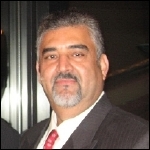http://stash.norml.org/drug-czar-medical-marijuana-a-gateway-for-legalization
By "Radical" Russ Belville on February 11, 2011

Paul Armentano does a phenomenal fashion review on the flaming pants Gil Kerlikowske, our drug czar, is wearing in the latest interview with The Daily Caller. Gil dodges a question about the volumes of scientific reports on medical marijuana by claiming “there are over 100 groups doing marijuana research, there are several things in clinical trials right now,” when, in fact, there are exactly two clinic trials ongoing.
I want to focus on something else Gil said:
(The Daily Caller)KERLIKOWSKE: What has been made extremely clear is that the legalization community has made it patently clear that marijuana drug is a gateway for legalization. I think they’ve made that intention clear.
Besides the whole “extremely patently clear marijuana drug” syntax, think about what Gateway Gil is saying here.
The legalization community thinks medical marijuana is a gateway to legalization of marijuana.
Medical marijuana is legalization of marijuana, just for a tightly-defined demographic. It’s a second-class, Jim Crow,quasi-legalization, but essentially, it is what those of us in the legalization community consider the bare minimum of legalization: don’t throw me in jail, leave me alone, let me grow and use and maybe even buy and sell cannabis.
Just how do we make this supposed gateway work? We pass medical marijuana laws and suddenly 50%+1 voters in the state vote to legalize for everyone? You got us, Gateway Gil, that’s kind of the plan. We know when cannabis isn’t completely forbidden, when people learn the truth about it, that it is safer than alcohol, that it is not carcinogenic like tobacco, that it isn’t chemically addictive like hard drugs, they begin to realize legalization is a reasonable alternative to breaking down people’s doors, shooting their dogs, and ruining their lives over a weed.
That’s the problem of medical marijuana for Gateway Gil: it provides living breathing visible examples of what legalization could be like. It’s harder to demonize the reefers when you happen to know someone whose cannabis use calms the tremors of their multiple sclerosis enough for them to hold down a graphic design job. It’s difficult to castigate the “black market drug dealers” when you can tour a professionally-run dispensary that pays sales taxes and tests product for impurities and cannabinoid levels. Those police overtime weeding operations you call “drug seizures” sound a lot less frightening when people are regularly exposed to regular-looking people tending beautiful green gardens.
However, there is quite certainly a difference between medical users who need cannabis and social users who want cannabis. Even if marijuana prohibition remains for social use, that in no way changes the need to fight for medical use or the fact that cannabis is a beneficial medicine. Gateway Gil can’t accept that and believes medical marijuana is all a bunch of smoke and mirrors…
KERLIKOWSKE: I think it hides the debate. If you call it medicine, if you call the people using it patients and the people distributing it caregivers, it completely masks the debate. I think that sends a bad message to young people, and I’ve heard that from high-school students we’ve done focus groups with.
Gil thinks this woman, Donna Lambert, and hundreds of thousands of others are faking it to get high.
No, it completely illuminates the debate, considering there arevolumes of study on the issue that have settled beyond a shadow of a doubt that there is medical utility in cannabis. Even the American Medical Association admits “smoked cannabis reduces neuropathic pain, improves appetite and caloric intake especially in patients with reduced muscle mass, and may relieve spasticity and pain in patients with multiple sclerosis.”
If high school students are reporting they believe that cannabis is medicine and smoking marijuana is less harmful than alcohol and tobacco, it is because that’s a fact. When is telling our children the truth ever a “bad message”?
KERLIKOWSKE: I think it came back to hurt them in the legalization push in California, where dispensaries are more ubiquitous than Starbucks. They’re on every corner. They’re outside waving signs. I think people got pretty tired of having it jammed down their throats. And it isn’t a constitutional right, the last time I checked.
Well, you’ve just confirmed why you needn’t fear medical marijuana, then, haven’t you? California’s got the most liberal medical marijuana law and you’re saying the ubiquity of it all turned off voters who then rejected legalization. So how can you be afraid that we’re using medical marijuana as a gateway to legalization when it’s been proven to not work? You should be secretly championing us so the public will see for themselves how awful medical marijuana is!
Terence McKenna said, “If the words ‘life, liberty, and the pursuit of happiness’ don’t include the right to experiment with your own consciousness, then the Declaration of Independence isn’t worth the hemp it was written on.” As for the Constitution, the Tenth Amendment says, “The powers not delegated to the United States by the Constitution, nor prohibited by it to the States, are reserved to the States respectively, or to the people.” I looked all through that constitution and could not find any power delegated to the United States to monitor and control what The People ingest. In fact, when it comes to The People, the Fourth Amendment says we have the right “to be secure in their persons… against unreasonable searches and seizures.”
The only reason the right to plant seeds, harvest crops, and ingest herbs wasn’t placed in the Constitution is that even the best educated hemp farmers couldn’t envision a time when it would be necessary to enumerate that right.










